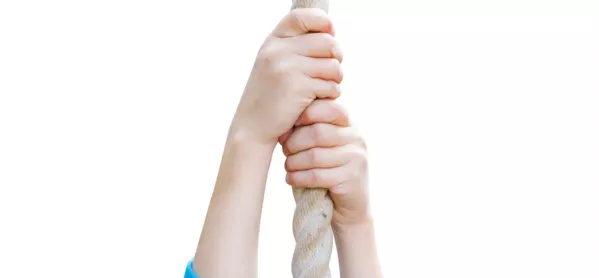Never before in our history, not during the First nor Second World Wars, the Russian flu epidemic of 1889-94 nor the Spanish flu epidemic of 1918-19, nor the various epidemics of this century, have schools closed. We have no research evidence nor collective memory thus of how best to look after our young, and no guide to alert us to the kind of difficulties that they might encounter, or how best to look after them.
I don’t want to address online teaching, about which much has already been written, but rather focus attention on just one idea to get us through, and that is challenge.
Challenge lies at the heart of all education. My own experience from 30 years as a school teacher, and now five years running a university, is that challenge lies at the heart of all education. Whether a three-year-old or a senior citizen studying for a postgraduate degree, all need to feel challenged and to experience reward and success in rising to the challenge.
It is challenge that needs to be at the heart of education for every student when the summer term begins, albeit online, after the Easter break.
Attention has rightly focused on the 16- and 18-year-olds who were due to sit their GCSEs, A levels, and other qualifications, this summer. To have got to the very brink of their courses, the fruit of two or more years of intensive hard work and sacrifice, only to learn that the exams will not be sat is a cruel blow for every young person, however proactive and reassuring the government has been about alternative methods of assessment and qualification.
Providing a sense of purpose
I believe that an alternative assessment model, while highly problematic, could still be instituted from home that would provide a guide to the grade being awarded, and as a way of keeping the students focused. They could be teacher assessed. If the grade achieved is out of step with the expected grade, and the work clearly not that of the student, compensation could be made. Having some form of written assignment taken at home might be no more than a guide, but it would help many A-level and GCSE students feel that they have at least a purpose and goal can feel reward for their hard work and ability.
Half of those students sitting A levels will be going on to university in the autumn or the following year. It is no good if they have no academic rigour for six months from March through to September. They need to be thinking, learning and writing assignments. They need to be challenged and to feel under pressure, to be stretched, if they are to be ready for university.
Challenge needs to be embedded for every student, including those not taking public exams. Students who were apt to get bored in class will be far more likely to turn off with online learning. Every student in every subject should thus be given appropriate tasks to challenge and engage them, where they can experience the pain of difficulty and the joy of accomplishment. These special assignments will complement ordinary classroom discussion, with teachers expecting more, not less, of each student.
The young need physical challenges also. Exercise is vital for good mental health, for reducing frustration and anger, combating obesity and for sleeping well. Difficult though it will be for many young people to find the space at home to exercise, all should be challenged to enhance their fitness with exercise routines and targets.
The young should be challenged also to find opportunities to volunteer and develop their soft skills. Looking after others is one of the best ways to combat anxiety and lack of self-worth. Websites are full of ideas for volunteering, though obviously opportunities grow considerably the older the student is.
It may well be prove that the quality of student attainment in the coming term proves even higher than it might have been otherwise, with students acquiring skills of independent study that they might never have done without this enforced period of home schooling. There is reason for optimism.
Sir Anthony Seldon is vice chancellor of the University of Buckingham and a former master of Wellington College




